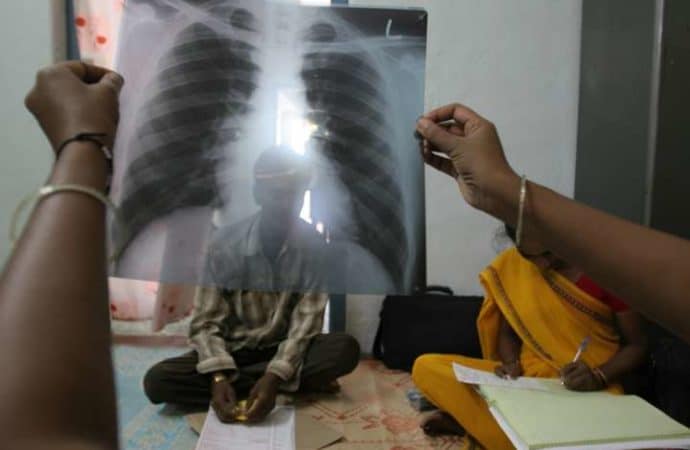WTD: FG, USAID, others raises alarm over low TB case detection in Nigeria

*As WHO decry poor budgetary funding of TB
Doosuur Iwambe,Abuja
The Federal government, the World Health Organisation WHO, the United States Agency for International Development (USAID) and other international and national TB networks have raised the alarm over low detection of TB cases in Nigeria.
To this end, the FG in partnership with stakeholders launched a Unified National TB Campaign and Advocacy Communication and Social Mobilisation, ACSM aimed at creating more awareness and increase in TB case finding.
Dr Ehanire who spoke during the TB day ministerial briefing and official launch of the Unified National TB Campaign and ACSM Guideline, in Abuja on Tuesday admitted that TB remains a major public health challenge.
Represented by the Minister of State for Health, Sen. Olorunnimbe Mamora, the minister however said that efforts by government have led to steady increase in the annual TB case notification in the last 4 years.
“Efforts have led to steady increase in our annual TB case notification in the last 4 years with the country recording the highest-ever TB case notification of 120,266 TB cases in 2019; a 13% rise from 2018. However, these over 120 thousand TB cases represents only 27% of the estimated cases.
“A key challenge to our control effort has been the slow pace of achieving Universal Health Coverage (UHC) for TB services. TB DOTS services were only available in 31% of health facilities.
The current coverage of GeneXpert machines, the first-line test for TB diagnosis, is barely 41%; 317 out of 774 Local Government Areas (LGAs)”, he said.
He added that tackling TB remains the top most priority of the president Muhammadu Buhari led government.
“We will ensure good health and well-being of all Nigerians as a vision in sustainable development goal 3. The federal ministry of health through Leprosy programme has initiated a number of interventions with some remarkable achievements.
“Let me emphasise that this administration is very committed to working assiduously with partners to mobilise resources for TB eradication in Nigeria”, he added.
Earlier, the WHO said lamented that Nigeria was far from achieving its target of diagnosing, treating and placing TB patients on preventive therapy, in the 2021-2025 National TB Strategic Plan.
The WHO representative in Nigeria, Dr Walter Kazadi in her key note address said that the poor budgetary funding of TB was a major threat to Nigeria’s achievement of its targets, which was committed to at the United Nations High Level meeting (UNHLM) on TB in 2018.
He further commended the 15 percent increase in TB case notifications in the country in 2020 despite the COVID-19 pandemic, emphasising the need to find the missing cases through surveillance.
“Low TB case detection remains a major challenge in the TB control efforts in Nigeria with the country only detecting 27% of the estimated incident TB cases.
The un-detected TB cases can further constitute pool of reservoir that fuel on-going transmission of TB in the community, as one undetected infectious TB case is able to infect between 12 – 15 people per year.
“Nigeria at the United Nations High Level meeting (UNHLM) on TB in 2018 made a commitment to diagnose and treat over 1.1 million TB cases and place about 2.2 million clients on TB preventive Therapy (TPT) from 2018 to 2022. The country is far away from achieving these targets with less than 2 years to go.
“TB control budgets in Nigeria continue to be drastically underfunded. About 70% of the TB budget in 2020 were unfunded, this is a major threat to the country efforts in achieving the set targets.”
USAID Acting Mission Director, Katie Donohoe who reiterated commitment to support Nigeria get control of TB, warned that if detection, diagnosis and treatment of TB was not prioritised and increased, the country may not be able to reach its set targets.
The Director, Public Health of the Federal ministry of health, Dr Morenike Alex Okoh in her welcome address identified lack of awareness is one of the major challenge in the fight against TB in Nigeria.
While noting that only about 25percent of Nigerians have good knowledge of TB, Dr Okoh stressed the need to create more awareness to enable Nigerians have the knowledge of TB.
She said that Nigeria is the second country in the world with the highest burden, she added that remarkable progress has been made as the ministry has implemented a robust approach in tracing missing cases.
World Tuberculosis (TB) Day is commemorated on March 24 every year to raise public awareness about the devastating health, social and economic consequences of TB, and to step up efforts to end the global TB epidemic.








